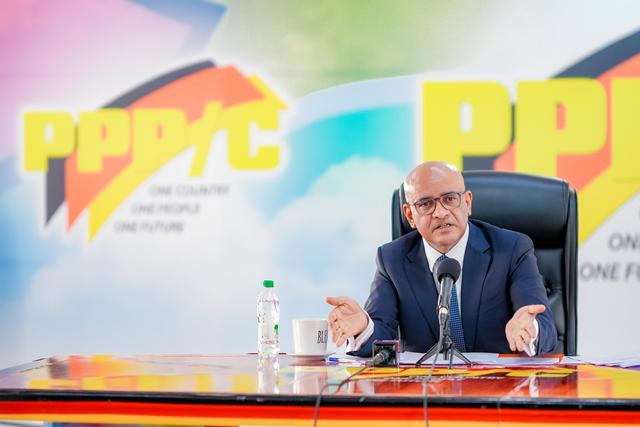– citing double standards on press freedom
General Secretary Dr Bharrat Jagdeo has slammed the Alliance for Change (AFC) for its refusal to answer questions from the press, also raising concerns about a glaring double standard on how political parties are treated by the Guyana Press Association (GPA).
For context, during a recent press conference, Cathy Hughes, an AFC Executive shut down questions by a reporter who sought to find out about the party’s involvement in the alleged rigging of the 2020 general and regional elections.

Hughes reportedly expressed that the party would like to entertain ‘topical issues’ and not issue that are five-years in the past.
“Imagine a serious political party saying in the presence of Nigel Hughes…they are not prepared to entertain any question. This is the official position of a party, [and] you had three leaders of the party there,” Dr Jagdeo expressed shockingly, when he addressed the issue on Thursday.
The lack of response from the Guyana Press Association, according to him, further suggests a disparity in how media freedoms and political accountability are applied.
In fact, according to the PPP GS, the GPA has incessantly and falsely accused the government of bullying its reporters, while blatantly ignoring actual concerning behaviour from the opposition.
He pointed out that if the government were to impose such demands, there would be an uproar from the press association, and even condemnation.
“Just imagine what the Press Association will say about the PPP…. but [there is] silence from the press association, and this is a serious political party,” the general secretary lamented.
Importantly, he underscored the fact that the AFC’s recent actions raise concerns about the party’s commitment to being held accountable, particularly for their past actions.
“Nigel Hughes does not have to answer about his role in the negotiations of the 2016 PSA, they don’t have to answer about Cathy Hughes’ awarding contracts to herself in her own ministry, because that’s in the past… if they can’t be accountable, how can they be accountable if they have political power?” he questioned.
He further emphasised that this example proves the broader dysfunctional political landscape, where the PPP/C is constantly demonized over perceived grievances, while opposition parties are not held accountable.

